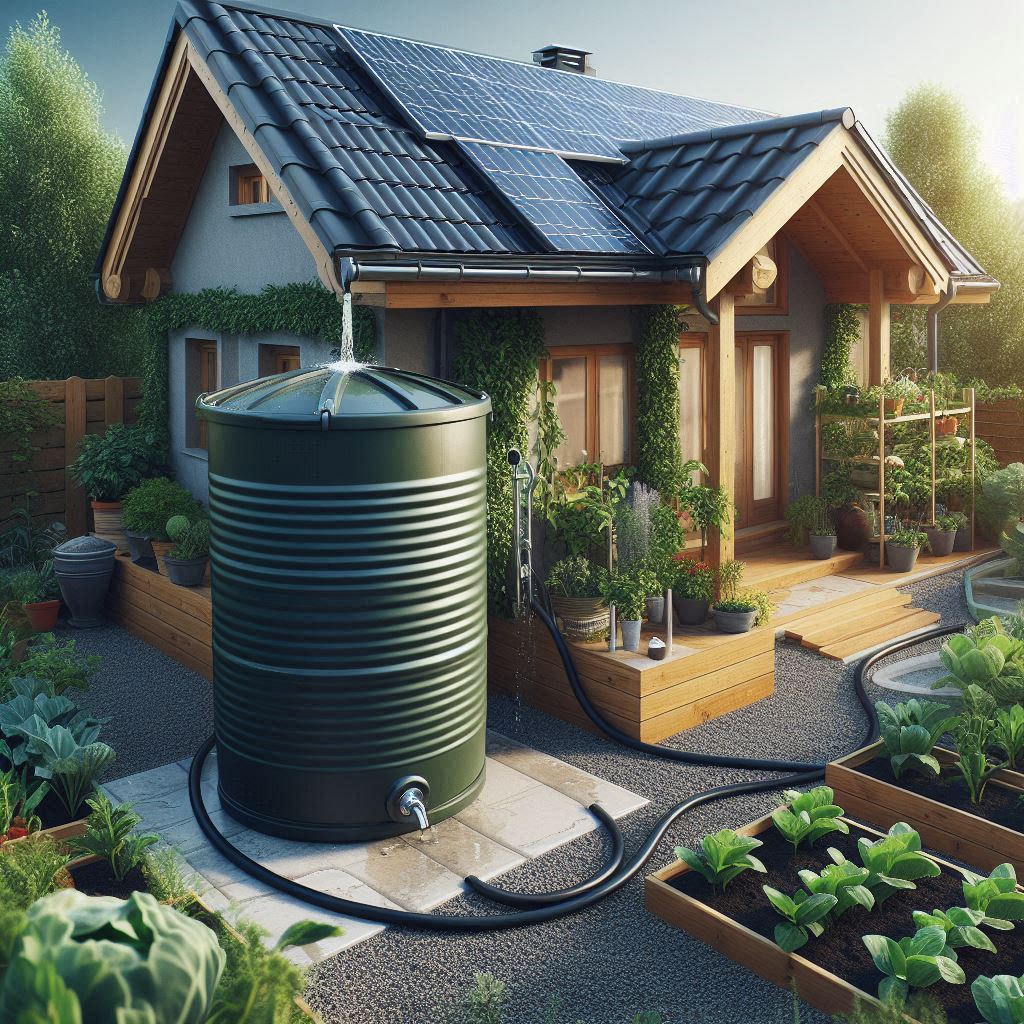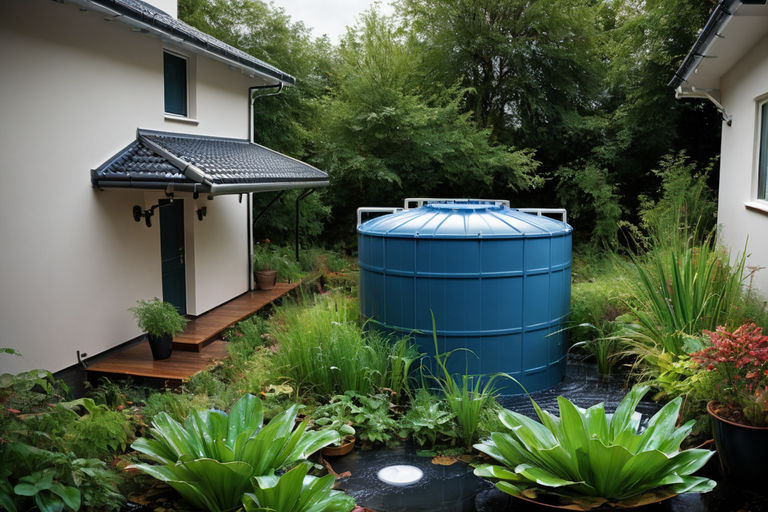From Rain to Garden: The Benefits of Rainwater Harvesting
Discover the secret to creating a thriving garden using rainwater harvesting techniques – your plants will thank you for it!
Topics
- Rainwater Harvesting: What is it and Why is it Important?
- Benefits of Rainwater Harvesting
- Implementing a Rainwater Harvesting System
- Success Stories in Ecovillages
- Final Thoughts
Have you ever considered the vast amount of rainwater that goes to waste during heavy downpours? Rainwater harvesting is a sustainable practice that captures and stores rainwater for later use, providing a myriad of benefits for both the environment and our wallets. Let’s explore how this simple yet effective technique can make a big impact in our quest for sustainable living.
Rainwater harvesting is not merely a method of collecting water; it’s an empowering approach to sustainable living that connects us more intimately with the natural world. Imagine harnessing the very essence of your environment—the rhythm of rainfall transformed into a resource that nourishes gardens, replenishes aquifers, and provides clean water for domestic use. This practice can foster a sense of responsibility and innovation within communities, encouraging individuals to creatively adapt their lifestyles in harmony with nature.
Moreover, rainwater harvesting serves as an antidote to environmental concerns like urban flooding and water scarcity. By capturing stormwater runoff, we can mitigate flooding risks while simultaneously reducing pressure on strained municipal water systems. This dual benefit promotes resilience in our communities, ensuring that during dry spells or unforeseen crises, households have a reliable backup supply at their fingertips. As we embrace this ancient yet timeless technique, we unlock endless possibilities—creating not just self-sufficient homes but also thriving ecosystems where both people and nature flourish together.
Rainwater Harvesting: What is it and Why is it Important?
Rainwater harvesting involves collecting rainwater from rooftops, gutters, and other surfaces and storing it for later use. This practice dates back centuries and has been utilized by communities around the world to secure water supply during dry seasons. By capturing rainwater, we can reduce our reliance on municipal water sources, alleviate pressure on local water supplies, and lower utility bills.
Benefits of Rainwater Harvesting
The benefits of rainwater harvesting are plentiful and diverse. Not only does it conserve water resources and reduce the strain on water systems, but it also helps in controlling erosion, reducing stormwater runoff, and minimizing flooding. Additionally, using harvested rainwater for irrigation can promote healthier plant growth, as rainwater is free of the chemicals and additives found in tap water.
Implementing a Rainwater Harvesting System
Setting up a rainwater harvesting system in your home or community can be a straightforward process with the right tools and guidance. Start by installing a rainwater collection system, such as a rain barrel or cistern, connected to your downspouts to capture rainwater efficiently. Ensure that the system is properly maintained, with screens to filter out debris and regular cleaning to prevent contamination.
Success Stories in Ecovillages
Ecovillages around the world have been at the forefront of sustainable practices, including rainwater harvesting. From intentional communities in rural settings to urban eco-hubs, ecovillages showcase innovative rainwater harvesting systems that not only meet the water needs of residents but also promote a deeper connection to the natural world. These success stories serve as inspiration for individuals and communities looking to embrace a greener lifestyle.

The Benefits of Rainwater Harvesting
Rainwater harvesting is a sustainable practice that offers numerous advantages for both individuals and the environment.
Environmental Benefits
- Reduces water consumption: By capturing rainwater, you decrease reliance on municipal water supplies, helping to conserve this precious resource.
- Protects water quality: Rainwater is naturally soft and free from chemicals often found in treated water, benefiting plants and reducing the need for water softeners.
- Reduces stormwater runoff: Capturing rainwater helps prevent erosion, flooding, and pollution of waterways by reducing the volume of water that flows into storm drains.
- Groundwater recharge: Properly designed systems can replenish groundwater aquifers, supporting healthy ecosystems.
Economic Benefits
- Cost savings: Reduced reliance on municipal water supplies can lead to significant savings on water bills.
- Increased property value: Rainwater harvesting systems can enhance a property’s value by demonstrating environmental responsibility and providing a water-independent feature.
Practical Benefits
- Reliable water supply: Rainwater harvesting ensures a consistent water source, especially during droughts or water shortages.
- Multiple uses: Collected rainwater can be used for various purposes, including irrigation, toilet flushing, and cleaning.
- Reduced water pressure: By supplementing municipal water supply, rainwater harvesting can help reduce water pressure, protecting plumbing systems.
Additional Considerations
- System size: The size of your rainwater harvesting system depends on your rainfall patterns, water needs, and available space.
- Water quality: While rainwater is generally clean, it’s essential to filter it before using it for drinking or cooking.
- Maintenance: Regular cleaning and inspection are necessary to ensure the system’s efficiency and prevent contamination.
By implementing rainwater harvesting, you contribute to a more sustainable future while enjoying the practical and economic benefits it offers.
Final Thoughts
As we strive to create a more sustainable future, rainwater harvesting emerges as a simple yet impactful solution that can benefit both the environment and our communities. By harnessing the power of rain, we can reduce our water footprint, conserve resources, and nurture our gardens with nature’s own gift. Let’s embrace the practice of rainwater harvesting and pave the way for a brighter, water-wise tomorrow.





